[ By Steph in Conceptual & Futuristic & Technology. ]
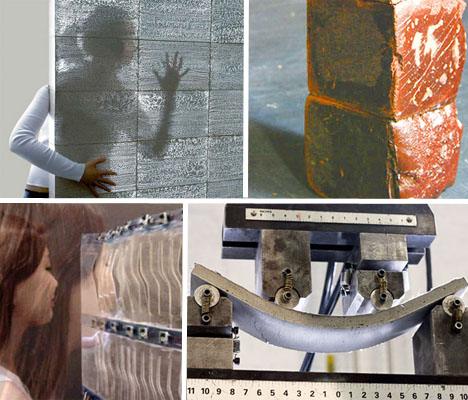
Future buildings could be made of artificial human bone, hemp, bacterial byproducts or concrete that absorbs greenhouse gas emissions and lasts thousands of years. Innovations in building materials have led to synthetic creations that are stronger, lighter and more sustainable than those we already use, potentially leading to architecture unlike anything we’ve ever seen before.
Animal Blood Bricks
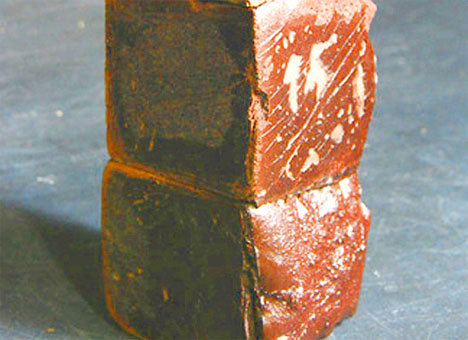
Abundant and yet almost always wasted, animal blood is an unlikely – and grisly – possible base material for building bricks. Architectural graduate Jack Munro sterilized the blood, added sand and baked them together to yield a strong, traditional-looking brick that’s also waterproof.
Translucent Concrete
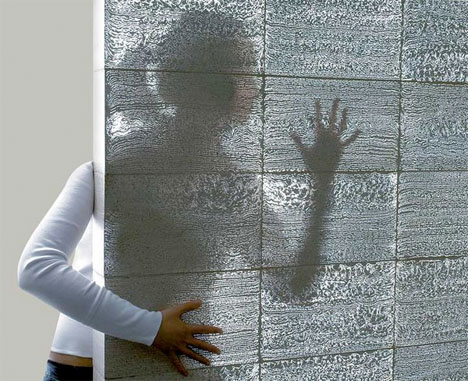
Litracon is a combination of optical fibers and fine concrete, produced as prefabricated building blocks for a translucent glass-like look with surprising strength. It’s handmade, so each block has its own individual pattern of light.
Bacteria Building Blocks
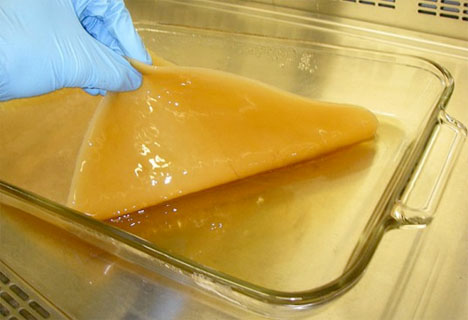
Will bacteria build the walls of our houses in the future? Scientists have directed the creation of bioplastics, cellulose and other materials by feeding certain materials to specific varieties of bacteria. The resulting metabolic process produces solid, surprisingly durable byproducts that could be used for all kinds of processes. Bacteria might even create bricks that could be used for building on Mars.
Concrete That Lasts 16,000 Years
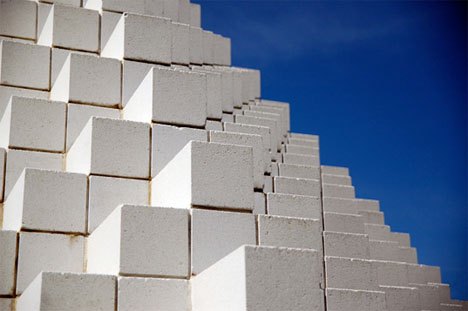
Not only would the new concrete being developed at MIT drastically reduce the carbon emissions currently associated with the manufacturing of this material, it would also result in an astonishing reduction in the amount needed in the first place. That’s because it’s strong enough to last for an incredible 16,000 years. This concrete will not only be stronger, but also lighter and thinner, so large-scale, lightweight structures require far less material.
Hempcrete: Hemp Biocomposite
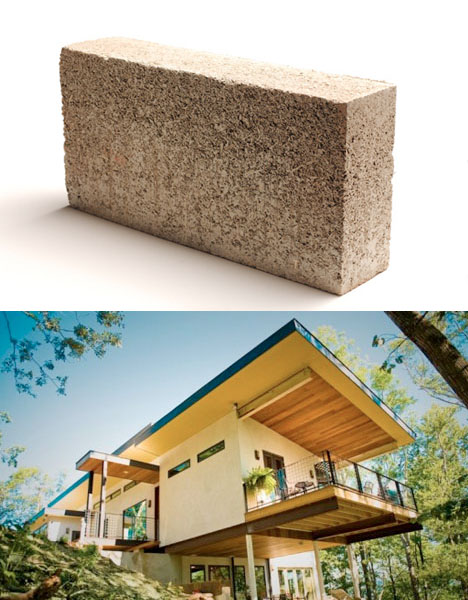
A new bio-composite, thermal wall material made of hemp, lime and water is not only eco-friendly but actually carbon-negative thanks to the amount of CO2 stored during the process of growing and harvesting hemp. It’s 100% recyclable, waterproof and fireproof and could be used for everything from walls and insulation to flooring. Once demolished, the material can be used as fertilizer.
SensiTile

Sensitiles are made up of a light-conducting matrix embedded in a substrate, so that they redirect and scatter incoming light in a similar way as fiber optics. Shadow-producing movements around these tiles produce an interesting rippling effect, and the tiles absorb and ‘bleed’ colors.
Next Page:
House Of Hemp And Blood 16 Futuristic Building Materials




[ By Steph in Conceptual & Futuristic & Technology. ]
[ WebUrbanist | Archives | Galleries | Privacy | TOS ]
![]()





You must be logged in to post a comment.